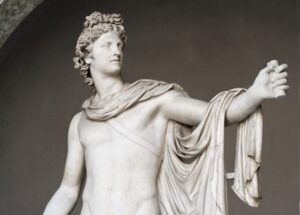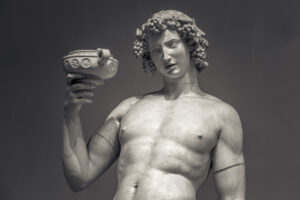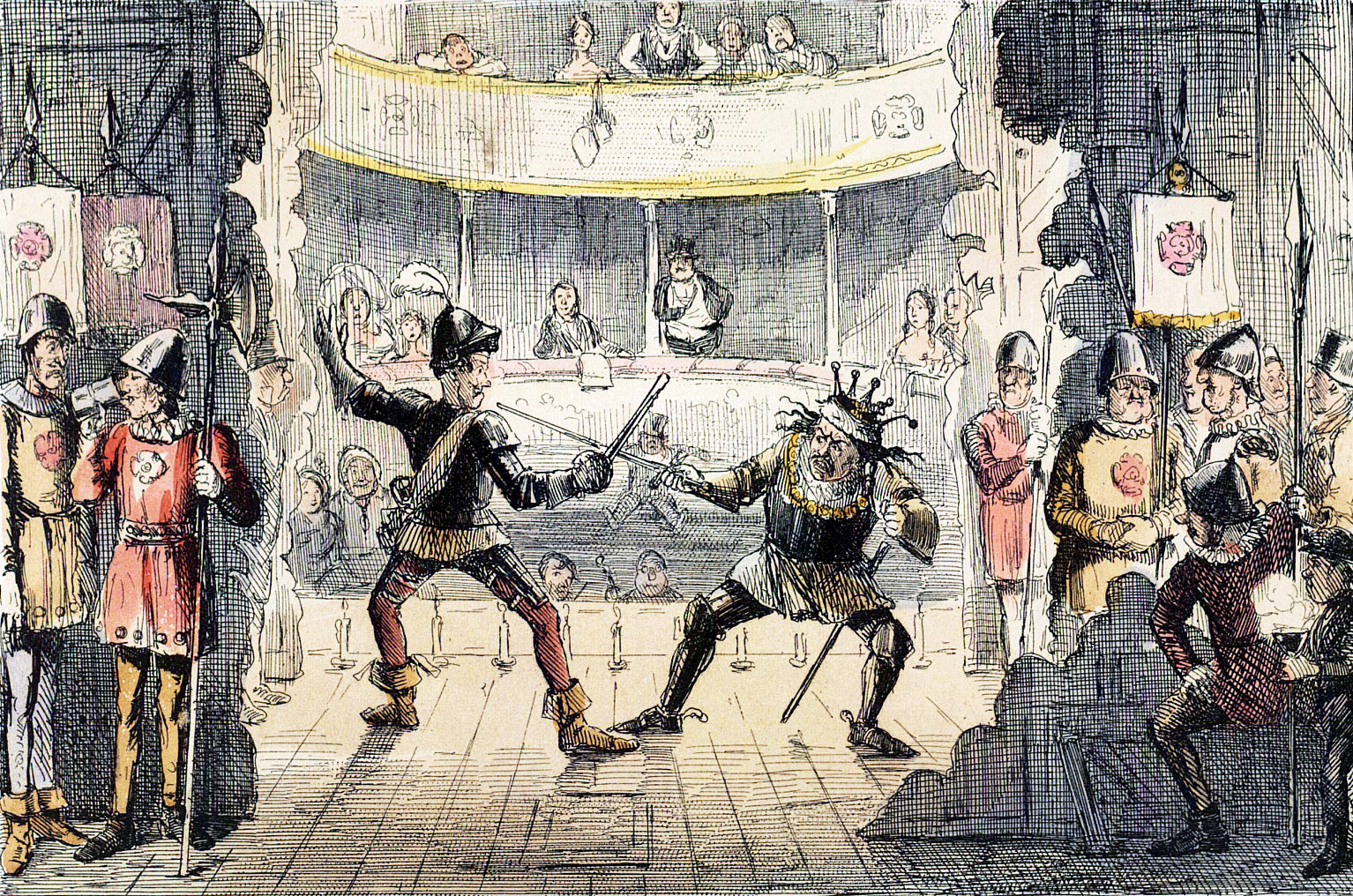Many literature students might imagine that drama originated from the ancient Greece. To their surprise drama originated from Egypt.
The first form of drama which is rather different from the one that is known today was performed in Egypt. These dramas had no dialogues. There was only singing and dancing and the main theme of these plays was the resurrection of a God. These performances can be associated with the Greek god, Dionysus since singing and dancing are activities related to him.
One of the most significant features of Greek drama is dialogue. Existence of dialogue in these plays make them associated with the Greek god, Apollo. He is that God of rationality and reason which is related with speaking and dialogues.

Nietzsche has used this associations to explain how attic tragedy, which is the highest form of tragedy was made.

It is by those two art-sponsoring deities, Apollo and Dionysus, that we are made to recognize the tremendous split, as regards both origins and objectives, between the plastic, Apollonian arts and the non-visual art of music inspired by Dionysus. The two creative tendencies developed alongside one another, usually in fierce opposition, each by its taunts forcing the other to more energetic production, both perpetuating in a discordant concord that agon which the term art but feebly denominates: until at last, by […] an Hellenic act of will, the pair accepted the yoke of marriage and, in this condition, begot Attic tragedy, which exhibits the salient features of both parents. (Nietzsche, Birth 19)
Nietzsche has considered Dionysus as a female figure. The reasons can be as following: his feminine face, the fact that he is the god of fertility, and that he was reactional which was considered a feminine characteristic at the time. He has considered Apollo as the male figure since he is associated with rationality. In this way he explained that the bond between these two and the combination of their features created attic tragedy.
This gradual evolution from performances only featuring singing and dancing to performances which contain dialogues was how the Greek drama was born.
Maryam Saadat





